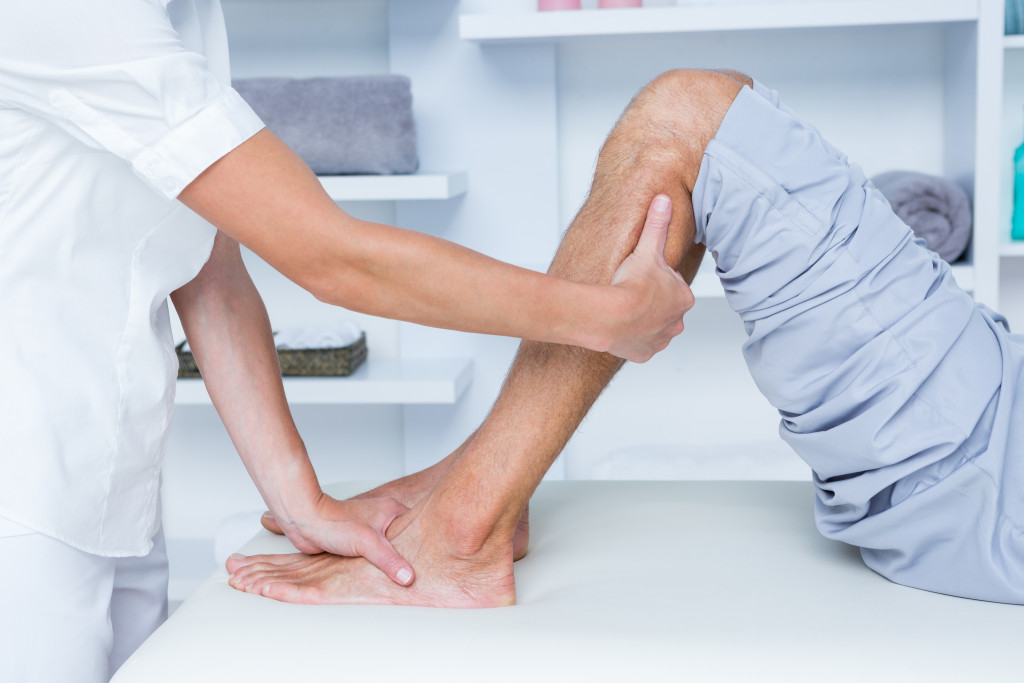One minute, you could be waiting for the sign to light up so you can cross the street, and the next, you’re in an ambulance because you got hit by a car. Or it could be that you slipped on an icy sidewalk as you were coming out of your house during winter. The point is that you could be perfectly fine one moment until you’re not.
Life is terrifyingly unpredictable that way, but that’s not a reason to stop living altogether. You could live in fear for your life and safety during every waking moment, or you could cross the bridge when you get there. Although this isn’t to say that you should forego all safety precautions and seek out danger instead.
You can live your life and prioritize your safety at the same time. And even though it’s easier said than done, you’ll find a way to get back on your feet if life throws a painful curveball that you failed to avoid. If you don’t know where to begin moving forward when you experience an injury, you can start by:
Allowing Yourself to Grieve
It’s okay not to be okay, or at least not immediately. You went through a traumatic experience, and it took away a part of your life that you can never take back. So, it’s okay if you don’t have the motivation to return to your life before the accident, especially because everything is different now.
But remember that you can’t wallow in your pain forever. Before you decide to return to the world, you must first take the time to grieve. It’s perfectly healthy to grieve when you experience loss, whether it’s someone or something you loved or a life that you can no longer live because of your circumstances.
Besides, grieving doesn’t necessarily mean that you can’t have what you lost again. For instance, you can feel sad that your injury caused you to become bedridden for a few months because you can’t do the same things you did, even if there’s a chance for you to regain your complete mobility in the future.
In such a situation, you still experienced a loss, which is all the time that you can never get back. That’s why it’s okay to feel sad and in pain, but after you’ve felt your emotions, the next step would be to move forward. So, take all the time you need to grieve, and then pick yourself back up.
Changing Your Mindset

Once you’ve had the chance to grieve, you’ll need to start believing that you can get better. It’s not so much a scientific explanation as it is a psychological one, but you’ll have a higher chance of getting better results when you’re in the right headspace and mindset to heal.
That’s why before you can make progress on your body, you’ll need to make progress with your mind. You may experience difficulty in healing if you’re hoping for one thing but believing another, as in hoping that you’ll regain your complete function one day but not believing that that day will ever come.
This is why you need to build a strong mindset, especially since healing is non-linear. There could be days when you feel like you’re on top of the world and days when you lack the motivation to do anything. And you have to know that it’s okay to feel exhaustion but that you should never give up on yourself in the process.
Undergoing Physical Therapy
When you’re finally a firm believer of your strengths and abilities, that would be the time to start seeking professional help to recover from your injury. Some therapists might suggest that you jump right into physical rehab once your injuries heal, but you should do what’s best for you since you know yourself better.
If you think that you can do all these things simultaneously, then so be it. The important thing is that you don’t overwhelm yourself with everything that you have to accomplish. Remember that the road to recovery is not a race; therefore, you don’t need to pressure yourself to get back on your feet if you still physically can’t.
Rather than force yourself to heal and recover on a strict schedule, you should find a pace that’s more comfortable for you. Communicate with your physical therapist regularly to avoid developing problems during your recovery. Maybe you can even ask who their rehab clinic equipment supplier is so that you can buy tools or devices that you can use for physical therapy at home.
You won’t be able to gain control over your life just because you decide that you want it; you need to put in the work before that can happen. So, don’t rush the healing process because you will need every minute to get accustomed to your life before. And slowly, but surely, you’ll find the courage to move forward without the injury defining who you are or what your entire life will become.

